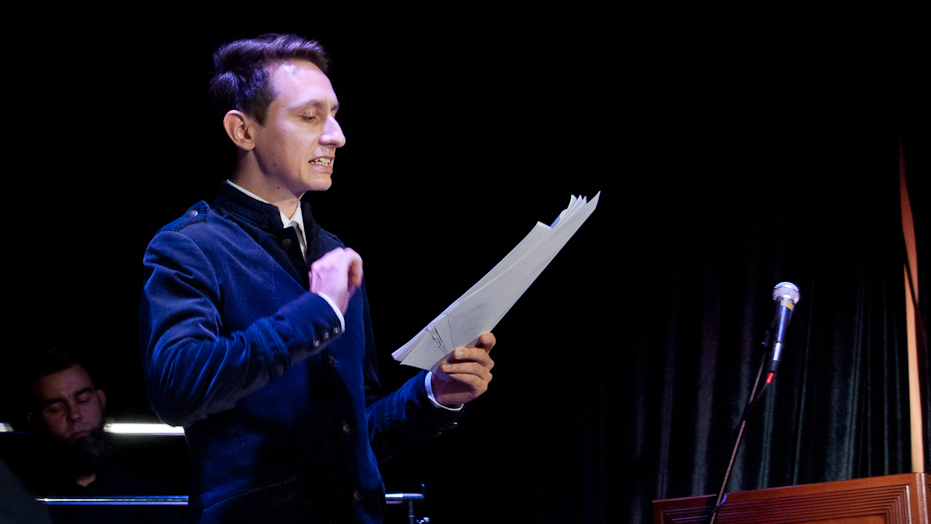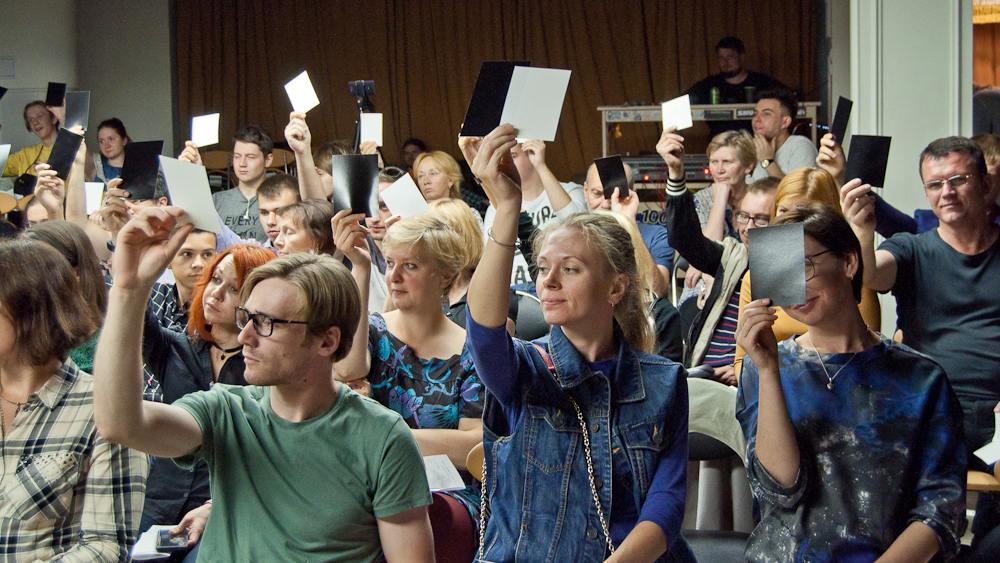Held on International Peace Day, 21 September, this was the first time the play written in the midst of World War II has appeared on the Russian stage. It was staged by Human Rights House Voronezh, together with the International Youth Human Rights Movement and the initiative “War is Obsolete”.
Michael Foot published the play “The Trial of Mussolini” under the name Cassius in 1943, describing the trial, which, according to the author, was bound to occur in the very near future. Performances on this work have been staged in Europe many times. Now, in 2018, the play was translated from English to Russian and staged on the Russian stage for the first time.
The performance was attended not by professional actors, but by local public figures, civil activists, and ordinary people of Voronezh. After the performance, the audience was asked to decide the fate of the defendant Mussolini and discuss whether a fair verdict is possible for him.
The open finale of the play allowed the organisers to transform the theatrical production into a public discussion. The audience and the participants discussed what they saw on stage and how much the play that was written 75 years ago is relevant today.
The play of Cassius allows you to look at the times of World War II from an unusual angle – focusing on fascist Italy and not on Hitler’s Germany. The history of the coming to power of an ambitious politician, after a while turning into a history of the formation of a dictatorship, is an eternal story.
“We had wonderful viewers. It is very pleasant that there was a full hall; it means that people needed our show. And the level of discussion after performance was impressive – it turned out to be deep and intellectually filled,” commented Alyona Obezdchikova, screenwriter and director of the play “Justice for the Dictator”.
Human Rights House Voronezh has a strong record of innovation and reaching out creatively on human rights, producing films and animations, staging plays and performances, and hosting festivals and exhibitions.
This article was published as part of the September 2018 newsletter from the Human Rights Houses and HRHF.








